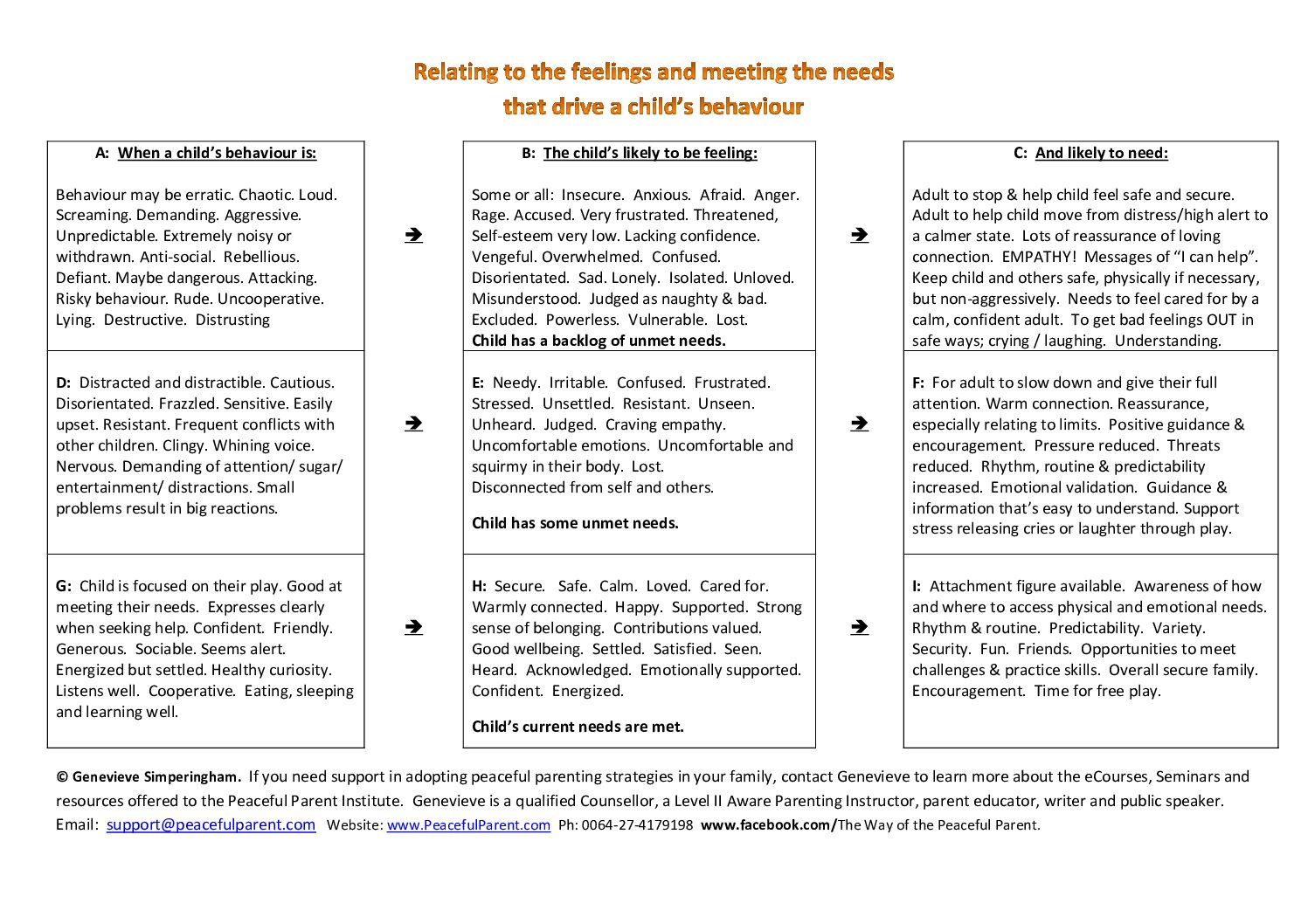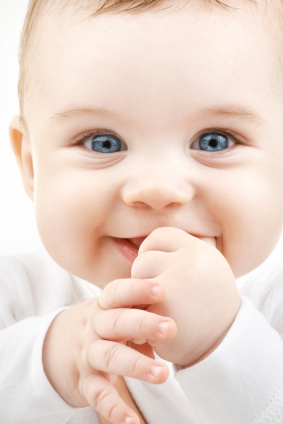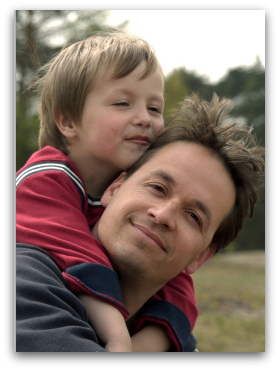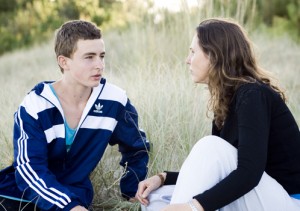 Melanie Jaqua, mother of 6 year old Chloe, approached me for some help with a research paper for English 101 on the subject of conscious parenting. I’m very happy to share her important work with you. Genevieve
Melanie Jaqua, mother of 6 year old Chloe, approached me for some help with a research paper for English 101 on the subject of conscious parenting. I’m very happy to share her important work with you. Genevieve
There is a newer, more effective parenting style taking over in today’s enlightened parenting community.
It is referred to as conscious carenting, or peaceful parenting. It is similar to attachment parenting, which Dr. Sears pioneered many years ago.
The model of conscious parenting allows parents and children to truly bond, to form healthy self-esteem, and encourages respect within and outside the family. It is based on unconditional love, gentle guidance (or discipline), and a parent’s ability to move past their own childhood issues in order to be a present, loving and empathetic parent.
Dr. Sears says, “This type of parenting takes a tremendous amount of patience and stamina, but it’s worth it” (askdrsears), and that if you start it early on in infancy, “it makes later parenting easier, not only in infancy but in childhood and teenage years” (askdrsears). The key is not to be rigid but to bond with the child, creating a flow that allows the parent to look at things from the child’s point of view. Losing patience and letting anger get the better of you may seem easier in the moment, but in the long run hurts the parent/child bond and does not correct the problem.
The older style of parenting is referred to as traditional parenting, and while it has more immediate results that benefit the parent, it does not benefit the child, and in fact harms the child. It is based on instilling fear, punitive discipline, and an authoritarian type of parent-child relationship, which weakens bonds. If parents want to raise happy, healthy, successful children, then conscious parenting is the route to take and traditional parenting is an archaic model of parenting that should be abandoned.
Traditional parenting has long been seen as something that helps the child and the parent, hence the old, popular saying, “spare the rod, spoil the child.” When a child is misbehaving, the traditional method is to stop the behavior, because it is considered unacceptable or is harmful in some way. The motives behind why the behavior is seen as unacceptable should be examined; maybe the parent feels the behavior reflects badly on him or her, or that it is bringing up feelings from his or her own childhood. Shefali Tsabary, author of the award-winning book, Conscious Parenting, talks about this topic in her lecture at a TEDxTALKS event, 7 Billion Well. She says that parents “have inherited legacies of emotional baggage from our parents” (Tsabary) and that we are sitting on emotional baggage that lies dormant and unconscious, waiting to be triggered, and who better to trigger us than our own children – they know just the buttons to push” (Tsabary). When she says that “We live under the tyranny of an inner critic” (Tsabary), it is hard to deny her logic that the reason parents want to stop any so-called bad behavior is because they cannot deal with the feelings that it produces. Tsabary says that we “need to connect to our own abundance, to trust our children, to follow their lead…[that] this is how they will absorb wholeness, abundance, fullness and spirit.”
Punishments, yelling, dismissal of feelings are common tools parents use to immediately suppress behavior that they consider “bad.”
When a parent can look with empathy, at the child’s point of view, they might see that those tools are hurtful and damaging. For instance, if a child is having a temper tantrum, the immediate reaction for most parents is to stop it by any means. When you think about immediate reactions, especially in a stressful situation, they are usually not the best options. An immediate reaction is based on emotion and often adds to the chaos that is already going on. So a child is having a tantrum, which means that he is upset and cannot properly express himself, and the person he counts on the most is only concerned with stopping his emotional outburst.
This has negative results for parent and child. The child feels that the parent has abandoned him, that his feelings are not at all important and must be suppressed, and on top of whatever was bothering him in the first place, now he has extra frustration about his parent rejecting him in his time of need. This creates distance between parent and child, and now the parent may feel guilty but relieved that at the same time. The behavior that was making him so uncomfortable has stopped, and he probably feels that he is justified in doing what he had to do to stop the annoying behavior. The parent is not looking at it from the child’s point of view, because the popular, traditional parenting style says that the child’s feelings are not the priority, especially when they are “bad” feelings and being expressed in a “bad” way. This is very damaging to the child’s self-esteem because it sends a message to the child that this part of them – the part that gets angry, frustrated and sad – is unacceptable and not wanted or loved by his parent. For instance, say you had a bad day, and something happened to upset you, you would probably want to vent to a good friend. Now, if that friend thought that whatever the thing was that upset you was ridiculous and that you were being illogical, would you like it if she told you that? If she said to you, “You are fine; nothing is wrong. Stop being upset or I will not want to talk to you anymore,” how would that feel on top of already being really upset? It would be devastating and you would probably not ever go to that friend again when you need emotional support.
Now imagine a 7-year old child being told the same thing in the same situation by her parent, who is the most important person in her world, who she counts on to love and care for her more than anyone. The child also does not learn how to properly cope with her feelings, and will probably turn to the parent less when she has problems in the future. It is important to recognize that babies, children, teenagers, as well as adults all have feelings and all deserve respect.
Respect is a key factor in Conscious Parenting.
In the book Peaceful Parenting: 10 Essential Principles, by therapist Marianne Clyde, respect is the fifth essential principle. Clyde says that “Respect is vital to realizing harmony in the home” (Clyde 55) and that “Teaching kids self-respect starts by realizing that just because they’re small doesn’t mean they don’t have…strong feelings and opinions” (59). In a moment where a parent instinctively wants to react emotionally, a good suggestion is to breathe. Breathing reduces tension, brings clarity, calms the emotions and releases toxins. Take a few deep breaths before you react; it will no doubt change the next action, words, and tone that you take. Detachment is another key factor when reacting to an emotional child. Clyde says, “You cannot accurately assess any need unless you detach and look at the situation from the perspective of: “How can I help? What is best in this situation” (87)? She also advises parents to watch for attitudes of superiority, criticism and stonewalling towards children or any member of their family, as they are behaviors that demonstrate lack of respect. Modeling the behavior of respect is how it is taught to children.
During a tantrum or outburst, if the parent can respond to the child with a calm acknowledgement of her frustration and a suggestion to take a deep breath and discuss the problem, then that shows the child that the parent has respect for her, and it teaches her how to handle emotional frustration. You can see how this option is far better than yelling, berating, or a dismissal of the child’s feelings. One promotes parent-child bonding, love, respect and healthy coping skills, and the other invalidates the child’s feelings, while making her think that the parent rejects her and that stuffing her feelings is the way to cope.
Time-out is also a traditional technique that is widely used and accepted by many parents, but does not teach the child how to cope with their feelings. In the conscious parenting world, it is considered detrimental to the child’s emotional and mental health for several reasons. It is likely that whatever the child did before the time-out had them feeling bad about themselves, so the parent ordering them to time-out only reinforces that bad feeling. It also gives the child the feeling that the parent is abandoning her in her time of need. Instead of relying on the parent-child bond, which makes the child want to please the parent, time-out creates a power-struggle which weakens their bond even more. A good alternative is a “time-in.” A time-in involves taking the child aside to “go to a soft place” such as on a couch to snuggle and calm down, using a soft tone to soothe them and talk about what happened (Spivey). This gives a child the sense that she is important, that her feelings (which are a part of her) are accepted, and that her parent loves her enough to soothe her and find out what is actually bothering her.
Now, parents of traditional methods might argue that this is giving in to the child, letting the child have too much control, and that this will encourage more tantrums in the future. However, it will actually give the child the confidence and coping skills she needs to have less tantrums. If you consider both options, you can see which one produces love and bonding, and which one produces hurt feelings and more frustration. Time-in also gives the child an opportunity to calmly consider what happened, why it happened and what some other options can be for the next time. It gives them a safety net of knowing that no matter what happens, they have a safe, soft place they can land: the arms of a loving parent.
Concepts like time-in, and conscious parenting are slowly gaining popularity. Its methods may seem too indulgent at first, but when tried, parents will find that it simply feels right. Conscious parenting feels good, and it fills both parent and child with positive emotion, self-esteem and hope. Co-founder of the Peaceful Parenting Institute in New Zealand, Genevieve Simperingham, counsels many parents and children, even finding time to reach out to thousands of parents online. She receives thousands of questions daily from parents who are desperate to help their child and themselves in a way that feels right to them and will help their children grow into the best people they can be. When asked about babies and crying, Simperingham says, “Crying is generally seen to be a problem, yet sometimes the babies cries are the solution to the problem, as long as the babies are being held while crying.” She says that they have the “innate ability to release stress and trauma through in-arms crying.” Most parents feel the need to stop the crying in any way possible and sometimes they panic. Parents need to realize that the baby’s cries are not their problem – they are the baby’s problem, and it is the parent’s job to be calm, cool, and soothing.
When asked about school-aged children behaving aggressively, Genevieve has this to say:
Rather than just trying to make them stop acting aggressively regardless of how they feel, ultimately we need to help them so that the urge to be aggressive happens much less. Children act out in rage when their feelings overwhelm them. Unexpressed fear, insecurity and frustration tend to drive a child’s urge to be destructive or aggressive. Children don’t want to be violent; it’s scary for them when they lash out. But they can’t self-regulate without our help, which entails responding with calm confidence and empathy when they lash out. Parents who put this approach into practice report that as their child learns to trust that their frustrations and struggles will be met with empathy, their tendency to be aggressive diminishes greatly and they start to seek their parent’s support rather than lash out. A big step! Many parents I’ve helped to gain control of their own tendency to hit or verbally attack their child have admitted that when they start to spin out, hitting or verbally attacking their child gives them some relief from their rising tide of rage, and that this relief can be quite addictive. They know it’s wrong. Children know it’s wrong. Invariably, the adults who struggle with lashing out were themselves treated harshly as a child when they became upset. What adults and children need in developing healthier habits is support, empathy and understanding; as well as learning some healthy alternatives that will also bring them relief from their intense feelings (Simperingham).
You might think that this type of parenting just seems like too much work, or unrealistic. After all, who can keep it together when your child is screaming bloody murder for seemingly no reason at all? It may seem like parenting is hard enough, and now it is going to be even harder, because now yelling and time-out is not allowed. Those are understandable worries, and parents can take comfort in knowing that no parent in the world is perfect, and that it takes time, effort and practice to parent peacefully. Conscious parenting also means be gentle to yourself; do not judge yourself. Parents will learn, heal and grow from this experience. Shefali Tsabari says, “Children are our awakeners, [they are] our healers.” Know that the work is worth the effort for the child and the parent; rewards are abundant with Conscious parenting. The experience of parenthood can be amazing or it can be horrible. You can go the route of the traditional parenting experience, grinding your teeth the whole way, semi-confident that you are doing the right thing, while something nags at you that you could do better. You can also listen to your gut, realize that your child deserves the best possible environment and that you really do have the power to create that. If you listen to your gut, it will also probably tell you that conscious parenting is the key to having an amazing parenting experience and to raising a happy, healthy, confident child, and a happy, healthy and confident self.
Works Cited
Simperingham, Genevieve. Personal Interview. 21 July 2013.
Clyde, Marianne. Peaceful Parenting: 10 Essential Principles. North Charleston:
CreateSpace Independent Publishing Platform, 2013. Print.
Spivey, Angela. “Probing Question: Is time-out a good form of discipline for children?” Penn
State News. 6 April 2010. Web. 18 July 2013.
Tsabary, Shefali. “Conscious Parenting: Shefali Tsabary at TEDxSF.” 7 Billion Well.
TedxTalks, 19 Nov. 2012. Web. 18 July 2013.








